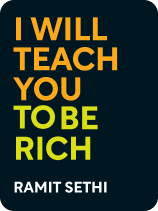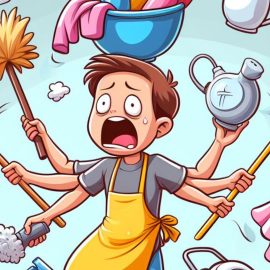

This article is an excerpt from the Shortform book guide to "I Will Teach You to Be Rich" by Ramit Sethi. Shortform has the world's best summaries and analyses of books you should be reading.
Like this article? Sign up for a free trial here .
Should you get a credit card? Why do some personal finance advisors discourage young people from getting credit cards?
Credit cards have somewhat a bad rap: many personal finance gurus urge people (especially young people who don’t have financial stability) to stay away from them. But credit cards aren’t inherently bad—if you use them responsibly, they’re a great way to proactively improve your credit and get access to useful perks.
In this article, you’ll learn the pros and cons of credit cards, how to use credit cards responsibly to build your credit, and how to find the right credit card for you.
Credit Cards: A Financial Menace?
Credit cards can be a powerful tool in your wealth-building arsenal. But many finance gurus portray them as more of a menace than a wealth-building tool. So, should you get a credit card?
Here is the reality about credit cards: if you use credit cards responsibly (by always paying your bill on time, in full), they’re essentially free short-term loans that help improve your credit history, making it easier to get larger loans (like for a mortgage or a car) down the line. On top of that, credit cards offer useful perks, like automatic warranty extensions on purchases you make using the card.
However, if you don’t manage to completely pay off your credit card bills in full every month, the penalties add up quickly. If you only make the minimum payment one month instead of paying off your balance in full, the balance you carry over to the next month starts to rack up interest at the annual percentage rate (APR), which is usually around 14% or higher. That interest keeps accruing as long as you carry a balance, which means that by the time you pay it off, you’ll often have paid more in interest than the original cost of the purchase!
Using Credit Cards to Build Credit
Credit cards are a helpful way to build credit, which is the foundation of the rest of your financial life. Your credit is a snapshot of your debt history, and it’s what lenders use to determine whether to loan you money (like for a mortgage or a student loan). If you use your credit card regularly and pay the balance off in full, you’re essentially taking out a mini loan and paying it back on time every month, which shows lenders that you can be trusted to borrow money and pay it back.
When lenders look at your credit, they’re looking at two main components: your credit report and your credit score. Your credit report is a comprehensive account of your credit history—all the loans and credit cards you’ve ever had, and all the payments you made on them. Your credit score sums up all that information into a single number between 300 and 850—the higher the number, the better your credit and the more attractive you are to lenders. Credit scores are also sometimes called FICO scores because the Fair Isaac Corporation (FICO) invented the credit score system.
A good credit score shows potential lenders that you have a history of paying back your loans, which means there’s less of a risk of them losing money if they give you a loan. As a result, they can offer lower interest rates, which can save you tens of thousands of dollars over the life of the loan. Even if you don’t anticipate needing to apply for a loan in the immediate future, building good credit takes time, and investing that time now will set you up for success years down the line when you do decide to apply for a loan.
To illustrate the importance of having good credit, the table below shows how your credit score changes how much you pay over the life of a 30-year mortgage (based on APRs calculated in 2018). Notice how borrowers with the best credit get the lowest interest rates, meaning they pay significantly less overall than borrowers with poor credit scores. In fact, in this scenario, someone with a score of 620 would pay over $70,000 more than someone with a score of 850 over the life of the mortgage.
| Credit score | APR | Total amount you pay |
| 760-850 | 4.279% | $355,420 |
| 700-759 | 4.501% | $364,856 |
| 680-699 | 4.678% | $372,468 |
| 660-679 | 4.892% | $381,773 |
| 640-659 | 5.322% | $400,804 |
| 620-639 | 5.868% | $425,585 |
Knowing your credit score is important if you want to build wealth. To check your score, you can use a free website like Credit Karma or pay a small fee for a more accurate, official score from MyFico. To get a more comprehensive picture, you can download your entire credit report for free from AnnualCreditReport.com once a year by law. Establishing good credit is one of the most important things you can do to improve your financial situation, so it’s better to focus your energy on that step than worry about cutting costs elsewhere—in the long run, improving your credit will save you much more money than clipping coupons.
Finding the Right Card for You
Using a credit card the right way—by paying off your balance in full every month, on time, using automatic payments—is a fast and easy way to boost your credit. If you’re in the market for a new card, Sethi has four guidelines for choosing the best one for you:
- Opt for a rewards card so that you’ll earn either cash back or travel miles with every dollar you spend on the card.
- Avoid retail store cards. The 10% you’ll save on your purchase at that store won’t make up for the high interest rates and exorbitant fees these cards usually have.
- Stick to two or three credit cards. While credit cards are an important part of your credit history, they’re not the only source of credit—and the more cards you have, the easier it is to slip up, miss a payment, and accidentally damage your credit instead of strengthening it. If you already have a few cards, hold off on opening any new ones for now.
- Start with Sethi’s personal recommendations. As a personal finance guru, Sethi’s done his research on the best credit cards out there. Here are the cards he uses personally:
- For everyday purchases: Alliant cash back card
- For travel and eating out: Chase Sapphire Reserve
- For business: Capital One cash back business card
- For extra benefits: Amex Platinum card
Using Credit Cards the Right Way
Once you have credit cards you’re happy with, you need to learn how to use them the right way—otherwise, it’s all too easy to forfeit the benefits and wind up saddled with debts and fees. Here are the six most important rules for using credit cards the right way:
1) Pay your bills on time, preferably in full. Even just one late payment can lower your credit score, raise your APR, and stick you with a late fee (usually about $35). You can bounce back from the occasional hit to your credit, but it’s best to avoid the issue in the first place by setting up automatic payments. If you do miss a payment, call the credit card company and tell them it was a one-time mistake and you’d like to have the late fee removed (make sure you’re telling them you’d like the fee removed, not asking if they can or will remove it). This works more than half the time.
2) If you’re paying any fees, try to get them waived. Start by calling your credit card company and asking a representative whether you’re paying any annual fees or service charges on your card. If you are, tell them you’d like a no-fee account and ask them to waive any current fees. This works more often than you might expect, but if not, ask if they have a no-fee card that you can switch to. Credit card companies don’t want to lose your business, so they’ll work with you to find a solution.
3) Lower your APR. Again, this involves calling your credit card company. If you’re nervous about the idea of negotiating, keep in mind that credit card APRs are usually between 13-16% and can be much higher. Ideally, you’re paying off your balance in full every month, but if you’re not able to do that yet, your APR determines how much more you’ll end up paying in total.
4) Keep your accounts open and active. Credit history is an important part of determining your credit score—the longer you keep an account open and continue making on-time payments, the better your score. That means that keeping that account open will ultimately benefit you more than switching your main card every time you find a great introductory APR somewhere else. This is especially important if you’re planning to apply for a loan in the next six months because closing an account will slightly reduce your credit score.
5) Call your credit card company and get a credit increase—but only if you have no current debt. This improves your credit utilization rate, which is responsible for determining 30% of your credit score. Your credit utilization rate is how much of your available credit you’ve actually used, which we can calculate by dividing the balance you currently owe by your total available credit.

———End of Preview———
Like what you just read? Read the rest of the world's best book summary and analysis of Ramit Sethi's "I Will Teach You to Be Rich" at Shortform .
Here's what you'll find in our full I Will Teach You to Be Rich summary :
- The small steps you can take towards living a "rich life"
- How to choose the right bank account and manage your credit cards
- How to create a financial system that grows your money automatically






